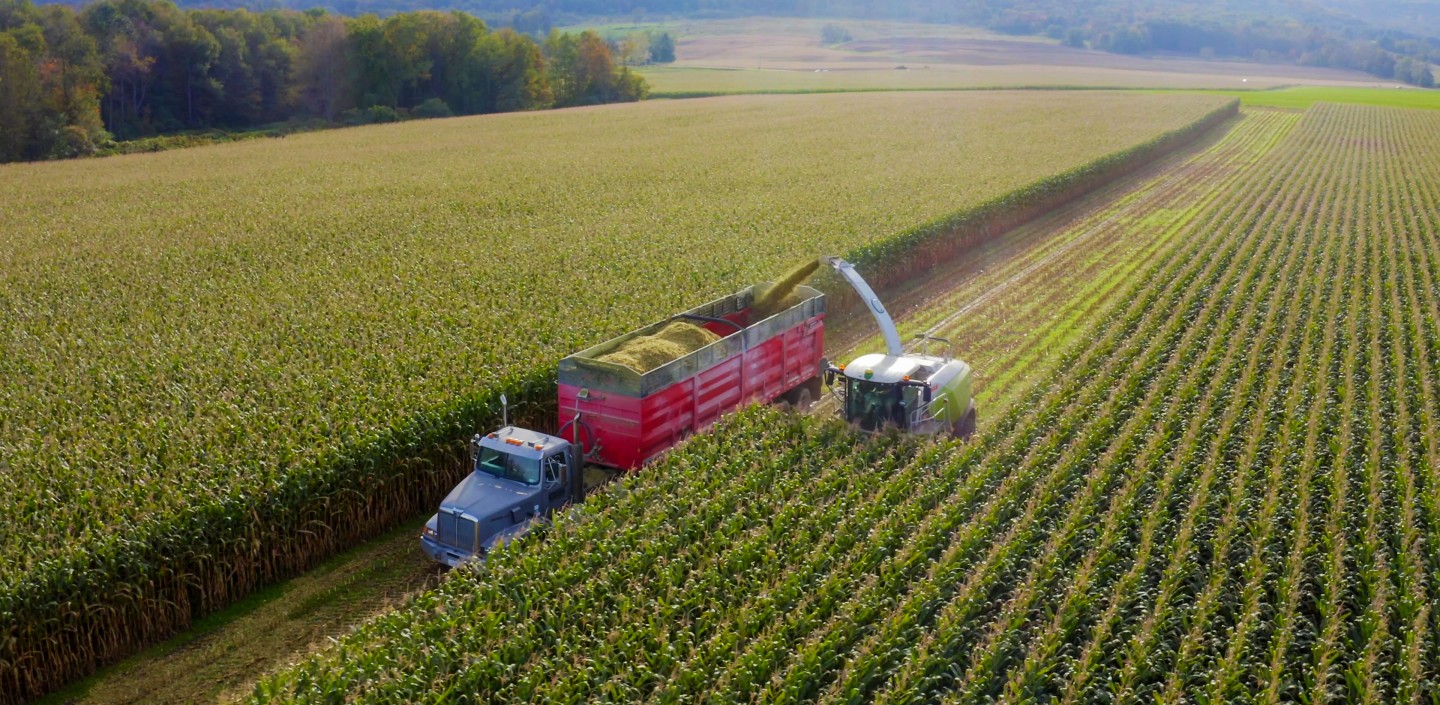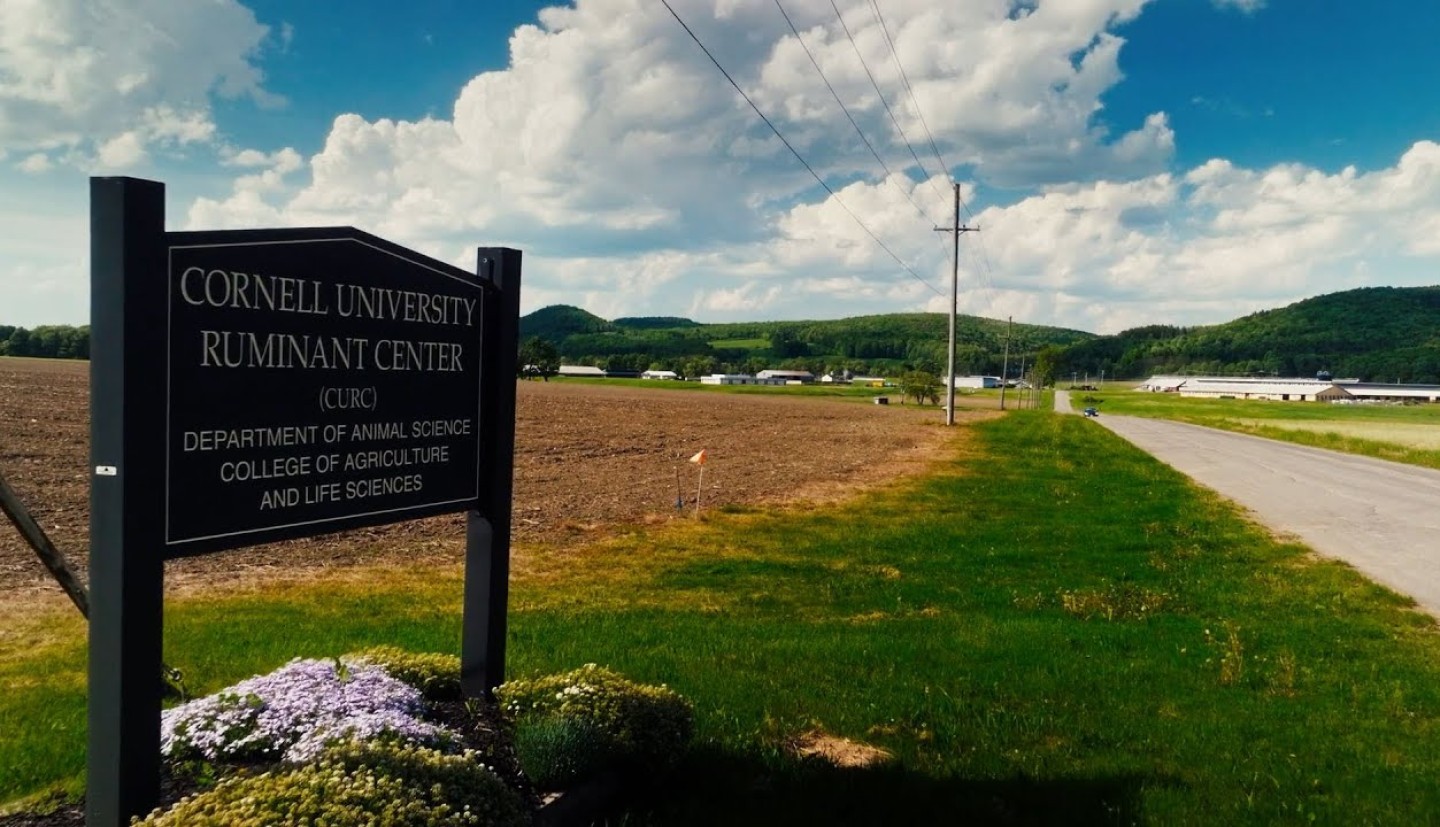An Ecosystem of Integrated Farms
The Cornell Agricultural Systems Test Bed and Demonstration Site for the Farm of the Future includes three farms:
- Cornell University Ruminant Center
- Cornell Teaching Dairy Barn
- Musgrave Research Farm
The farms comprise a large, diverse land base in New York State. CAST’s multi-site nature is a major strength: more can be learned about technologies, practices, and intelligent systems if they are applied across operations of varying size, type and management.
The three farm units also employ coordinated technology testing and demonstration, and the exchange of physical materials, such as equipment, feedstuffs and manure. Their two crop-production units (~2,550 acres available) and two dairy herds (~825 adult cows, 500 youngstock) generate enough data to realistically model key challenges of integration and analytics.
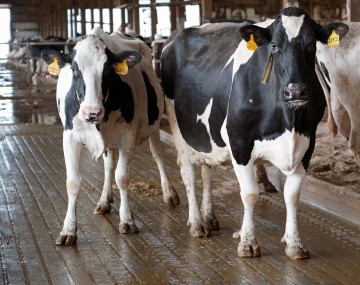
The Cornell University Ruminant Center is the heart of the CAST program. It is both a working dairy farm and a research center.
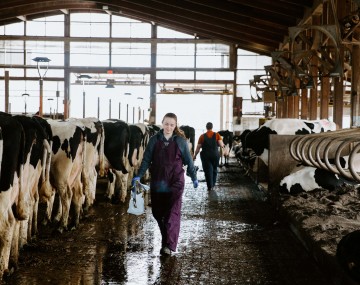
The Teaching Dairy Barn was built in 2012 and houses around 175 dairy cows, the average size of a New York dairy farm.
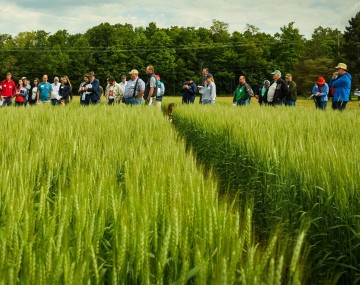
The Musgrave Research Farm has soils that are high-pH glacial tills, which are representative of the highly productive soils in New York state.




